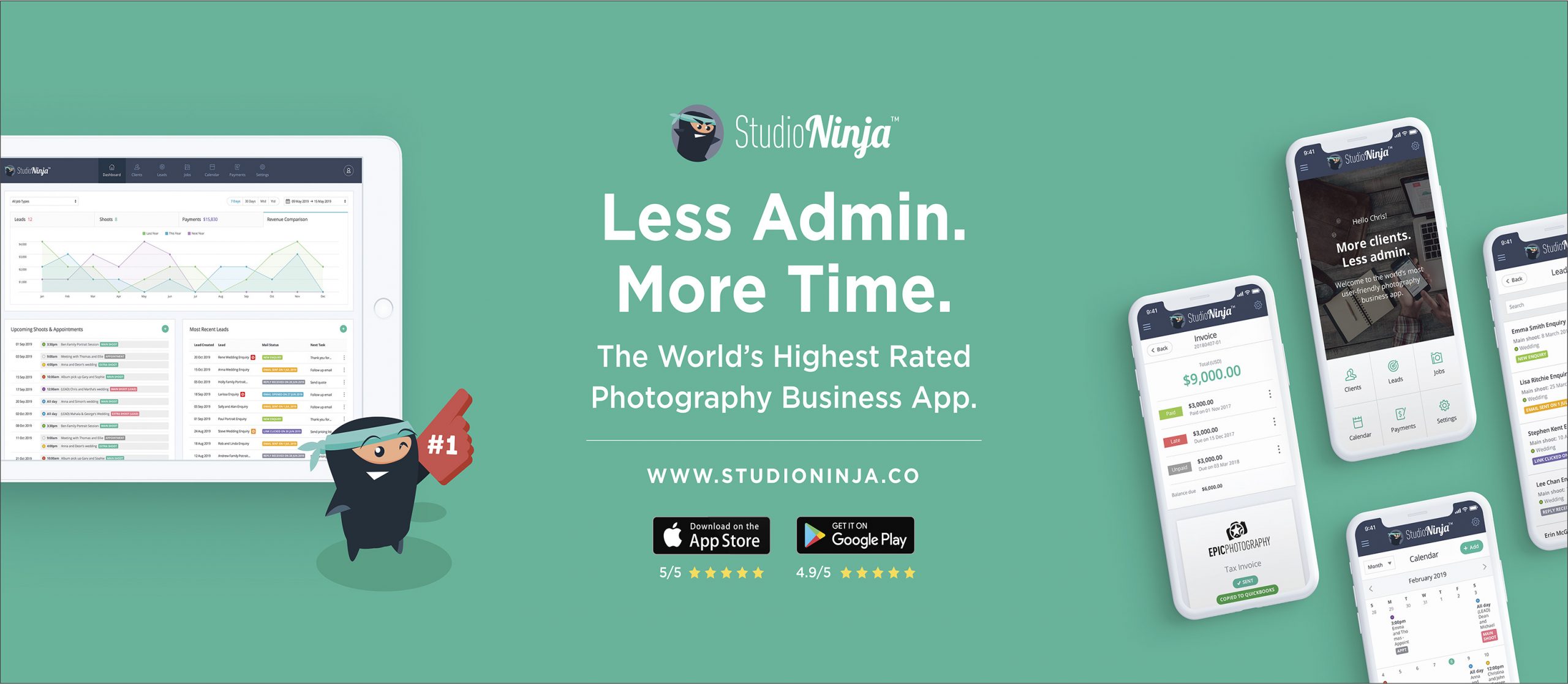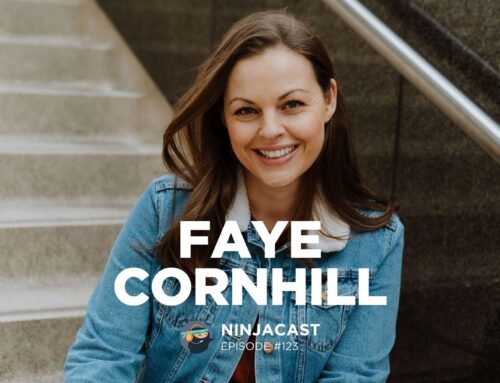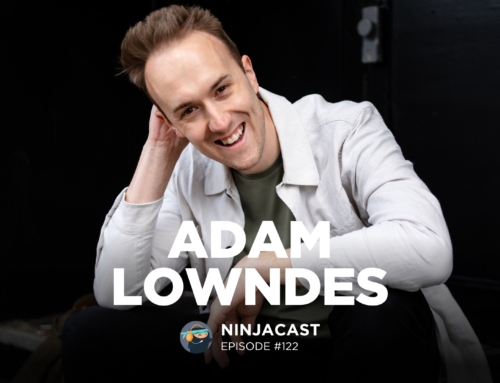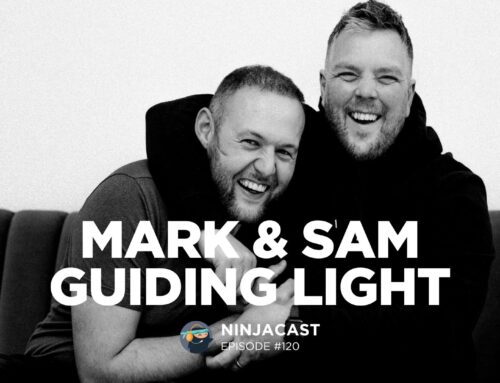034: Photo SEO Lab – Top Tips For SEO & How To Improve Your Website Speed Right Now
July 10th, 2021
‘Putting kindness and patience at the forefront of our dealings with each other means we can build trusted relationships that will help us both in terms of our photography skill and pushing ourselves to do better and to achieve higher levels of creativity.’
KAREN JULIA
Hey everyone! It’s Sally here, from Studio Ninja. Today’s episode is all about Karen from Photo SEO Lab.
Karen is a wedding photographer and SEO consultant and coach based in Glasgow.
With a wedding photography business in it’s 16th year, she specialises in shooting urban, city weddings in the summer months in Scotland, and out of season she coaches photographers on SEO with her ‘done with you’ SEO services that are personalised to each client. Karen has a background in teaching and coaching, and uses this to help empower and upskill other photographers and wedding industry professionals to help them achieve their goals.
Check out some of the biggest points from Karen’s interview below:
What is Photo SEO Lab?
I got into SEO myself as I said earlier on, because I needed to find a way to be found online. And as we know marketing is really expensive. So SEO or search engine optimization is a way of your kind of ideal client just being able to find you organically through using a search. So that turned out to be a great match maker because I love the kind of small intimate city [inaudible 00:11:27] and urban spaces. And I was able to connect with those people through search engine optimization and Google.
But, it really kind of, helping other people really only arose because I had friends in the industry that were paying SEO companies. And it felt like they were being taken advantage of. As creatives we have a lot of [inaudible 00:11:48] in this industry who are maybe more on the creative than the technical side. And initially having friends talk to me and saying I’ve paid this money for this company, things aren’t improving. But, I see your website everywhere. What’s going on here?
So it really kind of started off in helping friends. And then friends of friends. And then things escalated. Then, in 2016 I started working with a big US agency. Worked with hundreds of photographers including your good self. And as you know I love that problem solving side of things. And then in 2019 I started my own agency because I really wanted an approach where I could work live with clients. So that the approach that I have to SEO with photographers specifically is a kind of coaching and technical SEO hybrid. Where I’m doing all of the complicated stuff, but everything was done live. So it’s very coaching based and focused on helping empower photographers so that you know exactly what is wrong.
Things can be fixed for you without you having to worry about that. But then you understand best practice going forward. And what that means is, small business owners, like as photographers our expenses are crazy. The software costs are insane, the insurance costs are insane. Our kit isn’t cheap. It’s not exactly a super high margin business. So a lot of larger or kind of alternative structure businesses would maybe pay for ongoing SEO help, but that’s not really practical when the content you’re creating is so personal to your ideal clients. So personal in terms of your experiences with your photography work. So it’s kind of really crucial to have that knowledge and understanding to be able to really get your personality and creative useful content that’s going to kind of help people.

Website speed is a big buzzword right now. What can photographers to increase their website speed?
There’s a couple of different things with this. Because it is a huge buzz word at the moment. So my initial tip for everybody is just keep your money in your pocket. Speed potentially isn’t the big thing you think it is.
Because if you’ve got 40, 50 photos in a blog post, so do your competitors. Photography websites aren’t just going to get rid of their photos overnight. They are going to be slower to load. Our photos are what kind books us work. And I think as well, kind of expectations influence things because if I’m going to be loading a photo heavy website, I’m going to be expecting it’s going to be taking a little bit longer to load. You know?
But saying that, there are some real kind of quick ones that you do not need invest in a speed course. You do don’t need to spend any money on that, there are just very kind of simple, practical steps so I thought I’d share those with you.
One of the first things you can do is speak to your hosting company. Because I see a lot of things getting recommended in Facebook groups about things like cache plugins. But if you’ve got a server site caching your hosting, adding a cache plugin is going to slow things right down and cause you all sorts of problems. So speaking to your hosting company first and asking if there’s any cache in the server site. Finding out how powerful your hosting is. Whether it’s compatible with everything you’re using. Oh my goodness, I’ve spoken to hosting companies that I’ve asked those questions and said actually we don’t recommend this particular level for this particular thing. We recommend this instead.
But, when you sign up for hosting you may have been on a different thing. Those questions might not have been asked. So you can end up in something unsuitable. Where the best thing you can do is have a conversation with tech support that could make a big difference for you. Rather than you worrying about how many photos you’ve got on your homepage.
So like anything else it kind of, like a car in terms of it’s power. It kind of starts from the engine. So the firs thing to deal with is your hosting. Whether everything you’re using on your site is compatible. Getting your hosting company to maybe do a quick check. See if there’s any issues. If you’ve got incompatibility with plugins, then often that can show up in server locks. But, hosting companies aren’t just going to be reaching out to you, or technically not usually anyway. To say, oh by the way, we’ve noticed this. [inaudible 00:19:58] support ticket, asking those questions, seeing if they see anything that may be slowing things down is a really good way to just make quite a big difference quite quickly without you having to really do much other than as a question. So that’s where to start.
I think the next stage would be in terms of all the things that get added to a website over time. Step two would be a plugin audit. The websites I have seen for photographers where they added a gallery plugin, then thought no that’s no quite what I’m looking for. And then added another one. And then added another one. And the time that we have a conversation three years later, they’re like one of these is being used and I don’t know which one.
But so many photographers do the same thing. And the thing is with all those plugins, they’re all bits of software on that server. And every time your website loads, all these scripts are running. Even if they’re not used. So having a whole bunch of stuff on there that you’re not using can really slow things down. And it can be causing the conflicts that you might not realise. It might not be bad enough for you to take your website offline. You maybe got things that are doing similar things at the same time. That are then slowing down that whole process.
So step two would be a plugin audit. Go through every single one. Do you need it? If you’ve got a bunch of galleries and you don’t know which one is working, then just set aside an hour or two to figure it out. You can switch off each plugin one by one. Find out what it reads. A few photographers I’ve dealt with recently, you’re using two different plugins for different aspects of your website, then maybe you just need to stick to the one. Chose the one you like. You don’t need a selection. So doing a plugin audit and having as few plugins on there as possible. Think about it as driving around your luggage in your car. Your fuel economy is going to suck. It’s not beneficial. Unless you’re a wedding photographer and you need all that stuff.
So following on from that, I would say there’s things that you can do just a basic as to keep things lighter. So avoid fancy sliders. Have static photos. Make sure your photos are not larger than necessary. So the browser isn’t having to resize things. Try not to have 100 photos on a blog post. It’s not going to help. If you have a whole load of photos in a blog post and your bounce rate is high those things are not unconnected. I know it’s really hard choosing photos. It’s the hardest thing. So I typically say, choose an amount of photos that mean that your blog post can load in as close to two seconds as possible if not less.
There are some features you can use like lazy loads of images and different kind of theme optimisation, kind of options. Different themes have got different possibilities there. But, a lot of improvement can be made with the simple hosting improvement, plugin audit and not using a slider. So those three things are simple things that literally anybody could do today without needing to invest in a course. Or spending any money and it just takes a little bit of time and going through things. Making sure that, check what’s doing what and what you need.

If photographers were to come to you and they were to say that their website is just not working. They need to change platform in order to rank well on Google, they’re not ranking. It must be the platform that they’re using. What would you say to those people?
So often that is just not true, at all. Some platforms do have limitations. And kind of weird … I’m thinking of the best way to explain this. You’ve got quirks. Quirk is the right word. So I would say chose a platform that you can create content on and that you find easy to work. Whilst some of them are really restrictive, more often than not with WIX, Square Space, WordPress is probably the ideal thing that I would recommend. But, the platform isn’t what’s going to get you on page one really. It’s the content that you create and how that content is labeled. So as long as you can have clarity of letting Google know what is the main title of the page, what are your subheadings and as long as Google can kind of read the alt text, and see things like schema, schema is almost like a bar code for your website where you can present information in a structured way that says to Google this is me, this is my organisation. Here’s my logo and my details and here’s all the other places that I’m shown online. So schema is something that can help Google understand your brand and your business better.
As long as you have those components, the actual platform doesn’t matter. Google ranks content not website platforms. So whilst I always kind of recommend WordPress just purely because of the flexibility of that system if it’s overwhelming to you and especially if you’re starting out, then go with something that you can actually use. And that’s simple. And focus on creating great content. And most platforms you’re going to be okay on actually.

Thank you!
Thanks again to you all for joining us and a huge thanks to Karen for joining us on the show!
If you have any suggestions, comments or questions about this episode, please be sure to leave them below in the comment section of this post, and if you liked the episode, please share it using the social media buttons you see at the bottom of the post!
That’s it for me this week, I hope you all enjoyed this episode.
See you soon,
Sally

About Karen Julia
Karen is a wedding photographer and SEO consultant and coach based in Glasgow.
With a wedding photography business in it’s 16th year, she specialises in shooting urban, city weddings in the summer months in Scotland, and out of season she coaches photographers on SEO with her ‘done with you’ SEO services that are personalised to each client. Karen has a background in teaching and coaching, and uses this to help empower and upskill other photographers and wedding industry professionals to help them achieve their goals.





